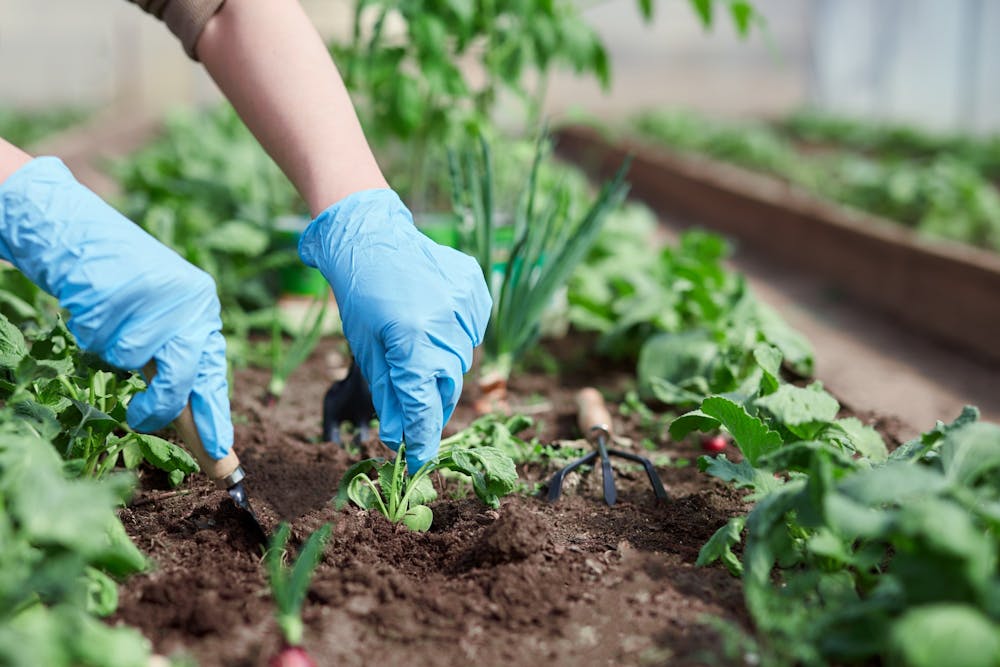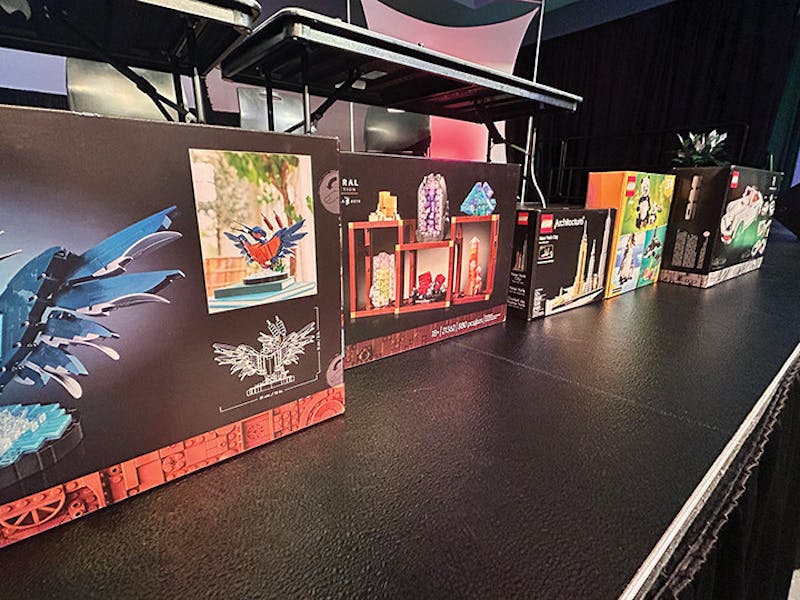Each spring, gardeners across the nation bring out their sunhats, dirt stained gloves and favorite tools to refresh their garden for the warmer months. You spend hours picking the right products, seeds and methods to keep your garden healthy and thriving. Even with all of this preparation you may feel that your garden is lacking something or is not doing as well as you’d hoped.
Including eco-friendly items and processes to your garden is not only good for the environment but may improve a garden’s quality. While going green in a garden may seem like a daunting task, here are five simple ways to improve your garden and the environment around it.
DIY Compost
Making your own compost is a responsible way of reusing everyday waste and promoting a healthy garden. The United States Environmental Protection Agency offers an easy guide on how to make compost, you’ll need three ingredients: browns, greens and water.
For outside composting select a dry area, add your material chopped in small pieces, moistening while you add them. You can cover this with a tarp to keep it moist and in two-to-five weeks your compost will be ready.
A great thing about composting is that you can also do it indoors if you don’t have a outdoor area for it, all you need is to repeat the steps above and get a composting container from a hardware store like this $25 one from Home Depot.
Choose Organic Products
Pesticides and other chemical products have harmed the environment through years of commercial farming, however, using them in your own garden is harmful as well. A Burpee article explains how you can actually hurt your own garden with chemical products by killing both bad and good insects.
When selecting organic products, get ones that are OMRI (Organic Materials Review Institute) approved. Good alternatives also include crop rotation and introducing beneficial insects according to Burpee.
Avoid Invasive Plants
The United States Forest Department’s website has information on how invasive plants can be dangerous not just for your garden, but for entire ecosystems. A plant or flower may be pretty, but it will dress up your garden at the price of your garden’s health.
The U.S. Forest Service advises against picking seeds from wild plants or picking and replanting flowers you can’t identify. Knowing what plants to avoid introducing to your environment is a simple step towards being eco friendly gardeners of all levels can take.
Attracting Pollinators
It’s no secret that bees, butterflies and other pollinators are essential to keeping environments healthy but figuring out how to get pollinators to your garden might seem like one. The good news is as long as you provide the right types of flora and fauna, pollinators will come to you.
Attracting pollinators is an incredibly impactful way to make your garden eco-friendly. Pollination contributes to important ecological functions like reproducing plants that clean the air and water and prevent erosion according to the U.S. Forest Service website.
Aquaponic Gardening
Aquaponics provides a habitat for fish that doubles as a garden for aquatic plants. While this is better suited for skilled gardeners, it is a great way to make your garden eco-friendly. Aquaponics combines the aquaculture and hydroponic process and is beneficial in many ways because it is a sustainable form of gardening, is available year round, uses less water than traditional gardening and can be a source of organic food, according to the Go Green Aquaponics website.
This website goes in depth about the process of aquaponics and provides directions on how to create your own aquaponic garden. Aquaponic gardening is a non-traditional and creative eco-friendly process that will challenge gardeners to learn new skills.




The Slate welcomes thoughtful discussion on all of our stories, but please keep comments civil and on-topic. Read our full guidelines here.